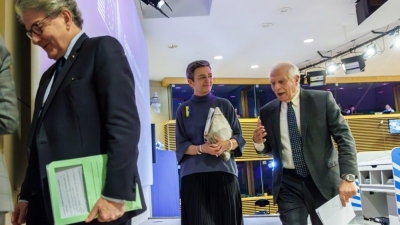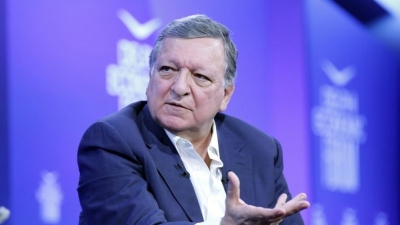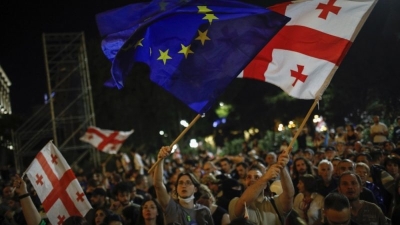Humanitarian aid needs more focus on tackling gender based violence, urges UNFPA director

Humanitarian aid programmes need to be even more focused on efforts to combat the rise in sexual and gender-based violence (GBV) in countries affected by crises, Natalia Kanem, executive director of the United Nations Population Fund (UNFPA), told Euractiv.
The risk of GBV sharply increases when conflict breaks out. Both for women in the affected area and those who become displaced. Unfortunately, the amount of GBV is also becoming increasingly prevalent in countries affected by crises, where the UNFPA is present, said Kanem.
In the Democratic Republic of Congo’s eastern region, which is once again in the midst of armed conflict, the rise is particularly alarming, she warns.
“We’re encouraging people to report and making it easier for them, but the volume of sexual violence is increasing,” said Kanem, emphasising that they do not know the true number of GBV victims, because of fear of reporting due to stigmatization.
Despite this, according to the UNFPA, GBV is one of the least funded areas in aid programmes.
While humanitarian aid programmes, particularly those of the EU, have increasingly prioritised efforts to prevent and respond to GBV over the years, she emphasises that the worsening situation warrants even more focus.
“The EU is in the top rank when it comes to taking GBV seriously. I think this has to be acknowledged,” she said, referencing how EU aid is already channelled into a wide range of prevention and treatment efforts.
“And still (…) the level of funding is not commensurate with the effectiveness that we want to see. So here I think there is more that can be done.”
Efforts on justice and data
Addressing this type of violence requires many different types of efforts, from prevention as soon as a crisis breaks out, to treatment and counselling for the victims.
What Kanem would like to see is more accountability for the perpetrators and urges that “the EU should attend to helping countries fight impunity against perpetrators,” because that might “deter the next set from doing the horrible things that have been done.”
Another issue is data on GBV, which is scarce and could vastly improve efforts.
“We’re trying to do our part, but we’re not going to hang around and wait for data to know that this is wrong and it’s a human rights violation. So let’s seek better data, but let’s not have that be a pretext for inaction,” said Kanem.
Lastly, she urges countries to listen to women to find solutions that work for them, also involve young people and work with men to encourage more ‘positive masculinity’.
“You can’t expect the victim to cure this problem,” Kanem added.
[Edited by Rajnish Singh]
Read more with Euractiv




